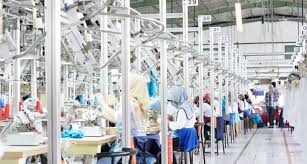
Indonesia's textile and textile product (TPT) industry is considered to have significant potential to become a center of innovation and global growth. However, this potential has not been optimally tapped due to policies that have tended to favor imports.
The General Chairperson of the Indonesian Filament Fiber and Yarn Producers Association (APSyFI), Redma Gita Wiraswasta, believes that TPT industry policies are still controlled by bureaucracy and officials who favor imported products. This situation has made it difficult for the domestic industry to develop innovation and has lost space for growth over the past 15 years.
In fact, Indonesia has advantages in human resources (HR) and energy at competitive costs. Furthermore, key raw materials such as polyester and rayon are also available domestically. In terms of cost efficiency, the national textile industry is still able to compete with Vietnam, although it cannot yet match Bangladesh. According to Redma, Indonesia's position can be strengthened if the supporting capacity of the industrial ecosystem from upstream to downstream is maximized in an integrated manner.
Prolonged import pressure has disrupted the industrial supply chain and reduced innovation capacity. To this end, Redma emphasized the importance of strategic steps to first restore the domestic market. He believes that securing the market from dumping and illegal import practices is the first step to enabling the industry to recover and provide room for innovation. Once stabilized, the sector can once again increase its competitiveness and expand its export market.
Meanwhile, Minister of Industry Agus Gumiwang Kartasasmita emphasized that Indonesia is ready to become a strategic partner and global innovation center for the textile and textile industry. He stated that the textile sector is no longer a sunset industry. During the first year of the administration of President Prabowo Subianto and Vice President Gibran Rakabuming Raka, the textile and textile industry grew by 5.39 percent and contributed 0.98 percent to the national gross domestic product (GDP).
Agus ensured that the Ministry of Industry continues to strive to maintain this growth momentum with a number of policies focused on strengthening competitiveness, increasing investment, and accelerating the transformation of the textile and textile industry. With the support of policies that favor domestic production and synergy between the government and industry players, Indonesia is believed to be capable of becoming a major force in the global textile supply chain.
